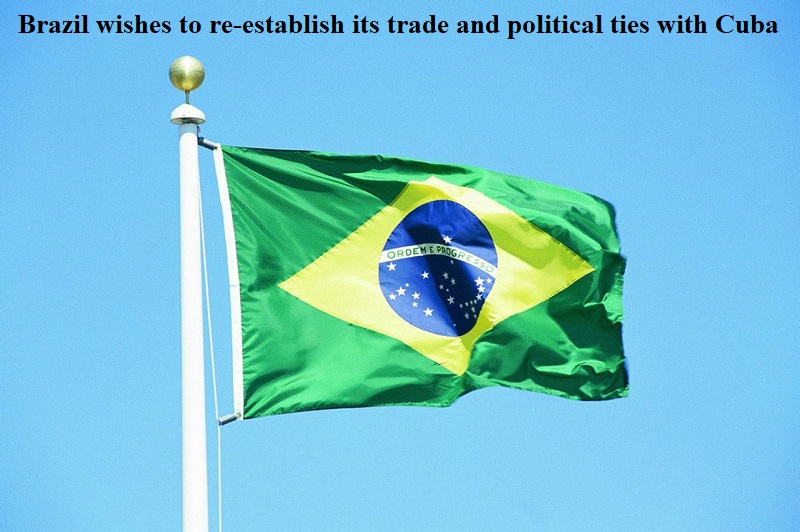
Brazil aims to revive and strengthen its trade and political connections with Cuba, as stated by a senior foreign adviser to Brazilian President Luiz Inacio Lula da Silva on Friday (August 18) following discussions with Cuban President Miguel Diaz-Canel in Havana.
Celso Amorim, Lula’s adviser, emphasized during the visit to Havana, “Our aspiration is to foster a relationship between Brazil and Cuba that is marked by deep friendship. This will contribute to regional peace, a core objective of diplomacy, alongside fostering economic development.” Amorim, a former foreign minister under both Lula and former President Itamar Franco, also mentioned forthcoming visits to Cuba by health experts and representatives from Brazil’s agricultural sector.
Brazil and Cuba enjoyed a robust relationship during the tenure of Lula’s leftist Workers Party from 2003 to 2016. However, ties between the two nations became strained with the ascent of far-right former President Jair Bolsonaro.
In 2019, the initial year of Bolsonaro’s presidency, Brazil voted against a United Nations resolution—its first time doing so—that urged an end to the US-imposed economic embargo on Communist-led Cuba.
Nevertheless, with Lula resuming office in January of the current year for his third non-consecutive term, Brazil, the largest economy in Latin America, has been actively seeking to rejuvenate its connections with the Caribbean island nation.
Cuba played a significant role in Brazil’s “More Doctors” initiative, wherein foreign medical practitioners were recruited by the Brazilian government to provide healthcare services, particularly in remote areas. Bolsonaro criticized and terminated the program upon his rise to power, leading to tensions with the Cuban government.
Earlier in June, Lula and Diaz-Canel engaged in discussions in Paris, a meeting that the Cuban leader characterized as “brotherly.”
In conclusion, Brazil is determined to strengthen its diplomatic and trade ties with Cuba under Lula’s leadership, with both countries showing a renewed commitment to collaboration after periods of strained relations.

Post Your Comments